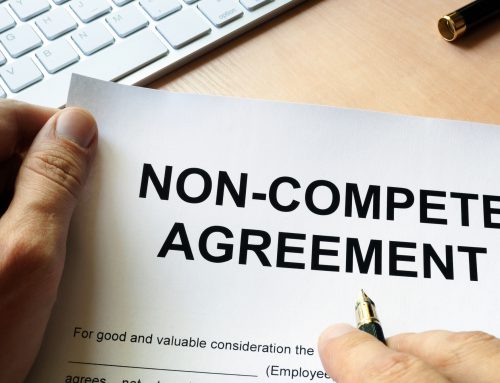In an enterprise, in addition to marketing, human resources or finance departments, an indispensable part is the legal system. However, not everyone understands What Is A Corporate Legal Officer? What works are usually handled? This is an important position in a company’s governance system, especially in large-scale enterprises, multi-industry operations, or strict legal compliance requirements. The article below will help you better understand the functions and duties of the Corporate Legal Officer.
-
What is a Corporate Legal Officer?
The Chief Legal Officer (CLO) is the head of the legal department in an organisation. Their main role is to supervise and manage all legal issues of the company, ensure full compliance with legal regulations in business activities, and minimise legal risks.
Corporate Legal Officers usually have high legal qualifications, long-term experience in the legal field, and corporate governance skills. They are not only mentors but also play a key role in building sustainable development strategies for enterprises.
-
The main duties of the Corporate Legal Officer
2.1. Comprehensive Legal Advice
The Chief Legal Officer not only acts as a legal defender for the enterprise but is also an important source of strategic advice to help the management make the right and effective decisions in business activities. One of the most important tasks of a Chief Legal Officer is to analyse and evaluate potential legal risks, especially in strategic decisions, such as market expansion to other countries. In this case, the Chief Legal Officer must deeply study the legal regulations in the new market, thereby issuing warnings about the risks that may arise due to legal differences and ensuring that the enterprise does not violate those regulations.
In addition, the Chief Legal Officer also supports the management in major transactions, especially mergers and acquisitions, or corporate restructuring. In these situations, the Chief Legal Officer plays a decisive role in advising on issues such as contract structure, agreement terms, and legal requirements to ensure that all transactions are carried out in accordance with the law and protect the interests of the enterprise. For example, when a company decides to acquire another enterprise, the Chief Legal Officer will have to ensure that the terms of the contract are not only in accordance with the law but also protect the interests of the enterprise in the transaction.
In addition, the Chief Legal Officer also needs to advise on specialised legal regulations, especially in areas that require in-depth knowledge of specialised laws. One good example is the compliance with regulations on personal data protection in technology enterprises. The Chief Legal Officer will need to update and analyse legal regulations related to data security, in order to ensure that the enterprise is fully compliant with the requirements for protecting the privacy of customers and partners, and avoid breaches that could lead to large fines or reputational damage.
2.2. Contract drafting and review
Drafting and reviewing contracts is an indispensable part of the work of the Chief Legal Officer, in order to ensure legal safety for enterprises in all transactions. Specifically, the Chief Legal Officer is not only responsible for drafting employment contracts, partnership contracts, or confidentiality agreements, but must also carefully consider each clause to ensure clarity and transparency. Each contract must be formulated in detail and logic to avoid misunderstandings or conflicts that may lead to disputes later.
In addition, legal inspection in contracts is an equally important task. The Chief Legal Officer needs to review all provisions to ensure they do not violate applicable laws and do not cause damage to the interests of the enterprise. This requires a solid knowledge of legal regulations, as well as the ability to identify points where risks may arise. Through thorough review, the Chief Legal Officer helps protect enterprises from disadvantages in transactions.
Finally, the contract negotiation process is also an important part of the work of the Chief Legal Officer. When participating in negotiations, the Chief Legal Officer must ensure that the terms of the contract are not only beneficial to the enterprise but also in accordance with legal regulations. This involvement helps ensure that enterprises not only reach beneficial agreements, but also avoid commitments that could lead to legal risks in the future.
2.3. Ensuring compliance with the law
One of the duties of a Corporate Legal Officer is to ensure that the enterprise complies with all applicable legal regulations. This includes managing and updating internal processes to ensure that they are always in line with the law. Corporate Legal Officers also need to work with other departments to develop legal compliance processes and policies for the entire enterprise.
Legal compliance is a mandatory requirement for every enterprise, and the responsibility of the Corporate Legal Officer is central to ensuring this. They must ensure that the enterprise not only complies with labour, tax, data security, and environmental regulations, but also that its contracts and transactions are legal.
2.4. Legal Risk Management
When an enterprise encounters legal disputes or is litigated, the Corporate Legal Officer will be the person directly responsible for handling. They will lead the legal team of the enterprise or work with outside lawyers to protect the interests of the enterprise. This requires the Corporate Legal Officer to have good negotiation and dispute resolution skills, and the ability to analyse the situation comprehensively.
Corporate Legal Officers also need to be able to prepare the necessary legal documents and work with external legal partners to ensure that the enterprise is best protected during litigation. They need to be able to make strategic decisions to help enterprises resolve disputes effectively and cost-effectively.
2.5. Legal Department Manager
A Corporate Legal Officer is a person who is responsible for managing the entire legal department of an enterprise. This means that the main duty of a Corporate Legal Officer is to lead in-house lawyers and other legal staff to ensure that the enterprise operates within the scope of the law. The legal department led by the Corporate Legal Officer not only helps to handle arising legal issues but also plays a proactive role in detecting and preventing potential legal risks.
A Corporate Chief Legal Officer needs strong leadership and strategic thinking to manage his or her team. Not only do they ensure that the lawyers and legal staff on their team are productive, but they also help enterprises achieve their business goals while remaining compliant with the law. Corporate Legal Officers often participate in corporate senior leadership meetings, making recommendations and strategies based on a deep understanding of the law.
In order to perform this role effectively, the Corporate Legal Officer needs to be regularly updated on changes in the law as well as legal trends that may affect the enterprise. This is not limited to the company’s business but also extends to social, environmental, and political issues that can have an impact on the enterprise. In large corporations, Corporate Legal Officers often have a team of experts to assist them in monitoring and analysing these changes.
2.6. Coordination with State Management Agencies
The Chief Legal Officer plays the role of a bridge between enterprises and state management agencies, ensuring that business activities comply with the law. During the inspection and examination, the Chief Legal Officer represents the enterprise to work directly with agencies such as labour and tax inspectorates, and at the same time prepares complete and accurate legal documents when there is a request for explanation or reporting, helping enterprises to be transparent and minimise legal risks.
In addition, the Chief Legal Officer is also responsible for supervising and ensuring that the enterprise has a full operating license in accordance with the law. Monitoring, renewing and updating licenses in a timely manner not only helps enterprises avoid sanctions but also creates a solid legal foundation, supporting enterprises to operate stably and sustainably.
2.7. Participate in corporate strategic planning
The Chief Legal Officer plays an important role in corporate strategic planning, both ensuring legal compliance and protecting enterprises from potential risks. Before implementing scale-up projects or important decisions, the Chief Legal Officer assesses legal factors that can affect the strategy, helping enterprises avoid legal disadvantages and disputes later.
In addition, the Chief Legal Officer advises the board on risks and legal solutions in long-term plans, supporting the quality of decision-making and protecting enterprises against unforeseen consequences. At the same time, the Chief Legal Officer ensures that all business activities comply with the law, contributing to creating a solid legal foundation, helping enterprises develop sustainably.
Through the above article, we have clarified What Is A Corporate Legal Officer? What works are usually handled? This position is envisioned as an integral part of protecting enterprises against legal risks, while ensuring legal compliance at all levels of operation. The Chief Legal Officer not only handles legal issues but also participates in building long-term strategies, helping enterprises develop sustainably. By identifying and preventing risks, Chief Legal Officer creates competitive advantages, enhances transparency, and builds credibility for enterprises. In short, the Chief Legal Officer not only protects legal interests but also serves as a strategic companion, helping enterprises develop stably in a challenging business environment.
The Chief Corporate Counsel Club (“CCCC”) is a social-professional organisation which was established on 24 April 2024 under the auspices of the Vietnam Association of Corporate Directors (“VACD”). It serves as a platform that connects individuals working in legal departments of enterprises, practicing lawyers in law firms, and legal experts. It provides a forum for sharing, learning, and exchanging knowledge and experience in corporate law, thereby enhancing the operational quality of enterprises. CCCC not only facilitates knowledge and experience sharing but also serves as a bridge between enterprises and government regulatory agencies. It aids in the dissemination and implementation of legal regulations directly to enterprises, contributing to the sustainable development of enterprises and improving the investment and business environment in Vietnam.






